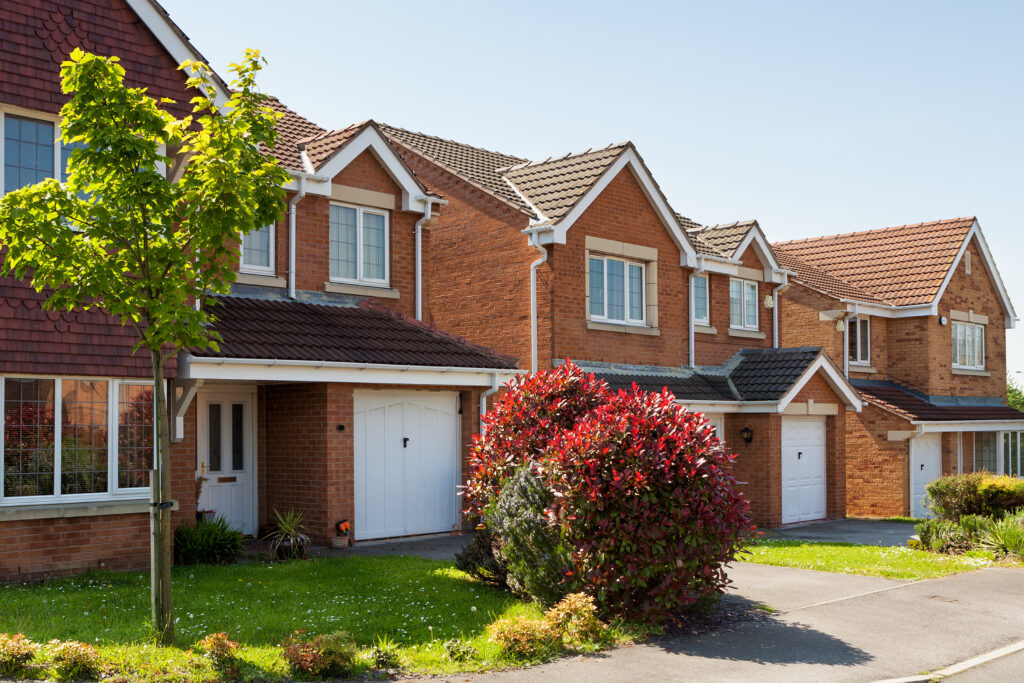As the summer months bring gardens to life, the responsibilities of maintaining outdoor spaces in rental properties inevitably become a topic of discussion between landlords and tenants. Ensuring clarity on who is responsible for what can prevent disputes and maintain a harmonious relationship. This article outlines the key responsibilities for both parties, covering hedges, trees, gutters, paving and even the installation of trampolines and large paddling pools, along with BBQ safety.

Hedges and Trees
Landlord Responsibilities
Landlords are generally responsible for the maintenance of large trees and established hedges in the rental property. This includes ensuring that trees do not pose any danger to the property or neighbouring properties and are pruned regularly to prevent damage from overgrown branches. Landlords should also handle any issues that arise from tree roots potentially damaging the foundation or underground pipes.
Tenant Responsibilities
Tenants, on the other hand, are typically expected to maintain the garden, ensuring everything is kept neat and within order. This responsibility often includes regular mowing of lawns and edging, weeding and pruning, and watering of plants. Tenants should communicate any concerns, such as large trees or significant hedge growth, to the landlord promptly.
Gutters and Drainage
Landlord Responsibilities
Maintaining gutters and drainage should be included in regular property inspections, especially in cooler, wetter months. Typically, landlords are not responsible for keeping these areas clear. Tenants are expected to manage this maintenance and promptly report any issues. Landlords commonly handle repairs and structural concerns.
Tenant Responsibilities
The upkeep of gutters and drainage systems usually falls under the tenant’s remit. Ensuring gutters are clean and free from blockages helps prevent water damage to the property. Tenants should keep an eye on the gutters, especially during autumn when leaves can accumulate and cause blockages and carry out cleaning when necessary.
Paving and Pathways
Landlord Responsibilities
Landlords must ensure that all paving and pathways are in good condition and safe for use. This includes repairing any cracks, uneven surfaces, or loose stones that could pose a tripping hazard. Regular inspections and maintenance are essential to prevent accidents.
Tenant Responsibilities
Tenants are responsible for the general upkeep of paving and pathways. This includes sweeping away leaves and debris, removing weeds, and ensuring that the pathways are clear and accessible. Tenants should report any significant damage or hazards to the landlord immediately.
Installing Trampolines and Large Paddling Pools
Landlord Responsibilities
The installation of large items like trampolines and paddling pools usually requires landlord approval. Landlords need to consider the impact on the property, including potential damage to the garden and increased wear and tear. It’s important to discuss and agree on the conditions of use and any necessary precautions to mitigate risks.
Tenant Responsibilities
Tenants should seek permission from the landlord before installing trampolines or large paddling pools. Once approved, tenants are responsible for ensuring these items are used safely and maintained properly. This includes regular checks for damage and adhering to safety guidelines, such as ensuring trampolines have appropriate netting and padding.
BBQ Safety
Landlord Responsibilities
Landlords should provide guidance on the safe use of BBQs in the rental property. This includes specifying suitable locations away from buildings, fences and overhanging branches. Landlords may also need to stipulate the use of safety equipment, such as fire extinguishers and establish rules regarding the disposal of hot coals and ashes.
Tenant Responsibilities
Tenants must follow the landlord’s guidelines and use BBQs responsibly. This includes positioning BBQs in safe locations, never leaving them unattended while in use and ensuring they are fully extinguished after use. Tenants should also regularly clean BBQs to prevent grease build-up, which can be a fire hazard.
Maintaining a garden in a rental property requires clear communication and cooperation between landlords and tenants. At Belvoir Northwich, we are committed to helping both parties understand their responsibilities to ensure the garden remains a beautiful and safe space. If you have any questions or need assistance with your rental property, please do not hesitate to contact us.








